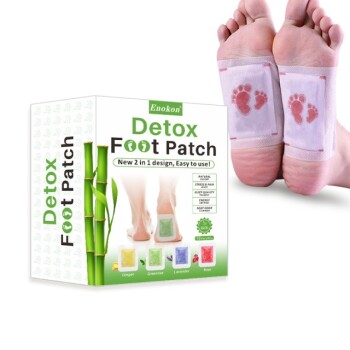The transdermal formulation of long-acting β2 agonists is currently approved for use as an anti-tussive therapy in only two countries: Japan and Korea. This approval is specific to these regions, where it is utilized as a non-specific treatment for cough. However, there are significant concerns regarding the efficacy and safety of this application, as the evidence supporting its effectiveness and safety profile is considered insufficient. This limited approval and the associated concerns highlight the cautious approach taken by other countries in adopting this therapy for cough treatment.

Key Points Explained:
-
Approval Countries:
- The transdermal long-acting β2 agonist is approved for anti-tussive use exclusively in Japan and Korea. These are the only countries where this specific formulation is legally recognized for treating cough, reflecting regional regulatory decisions.
-
Non-Specific Anti-Tussive Use:
- In these countries, the drug is used as a non-specific anti-tussive, meaning it is not targeted at a particular cause of cough but rather aims to alleviate symptoms broadly. This contrasts with more targeted therapies available elsewhere.
-
Efficacy and Safety Concerns:
- There is limited evidence supporting the effectiveness of transdermal β2 agonists for cough suppression. Regulatory bodies in other regions may have deemed the existing data insufficient to justify approval.
- Safety concerns also play a role, as the long-term effects and potential side effects of using β2 agonists transdermally for cough are not well-documented.
-
Regulatory and Clinical Implications:
- The approval in Japan and Korea may reflect differences in regulatory standards or clinical practices compared to other countries. This divergence underscores the importance of localized evidence in drug approval processes.
- Healthcare providers in these regions may have access to this therapy, but its use is likely accompanied by caution due to the unresolved questions about its benefits and risks.
-
Global Perspective:
- The absence of approval in other major markets (e.g., the US, EU) suggests a lack of consensus on the therapy's viability. This could be due to stricter evidence requirements or differing opinions on the risk-benefit balance.
-
Practical Considerations for Purchasers:
- For those procuring equipment or consumables related to this therapy, understanding the limited geographic approval is critical. It may influence decisions about sourcing, distribution, and compliance with local regulations.
- The unresolved safety and efficacy issues may also prompt purchasers to seek alternative, more established therapies unless operating within Japan or Korea.
This analysis highlights the niche status of transdermal β2 agonists for cough treatment and the importance of evidence-based decision-making in therapeutic approvals.
Summary Table:
| Key Aspect | Details |
|---|---|
| Approval Countries | Japan and Korea (exclusive) |
| Therapeutic Use | Non-specific anti-tussive (broad cough relief) |
| Efficacy Concerns | Limited evidence for cough suppression |
| Safety Concerns | Insufficient long-term safety data |
| Global Regulatory Status | Not approved in US, EU, or other major markets |
| Practical Implications | Sourcing and compliance considerations for Japan/Korea operations only |
Need compliant transdermal solutions for your market?
As a bulk manufacturer of reliable transdermal patches and pain plasters, Enokon offers technical expertise for custom R&D and development. Whether you operate in Japan, Korea, or other regions, we ensure regulatory-aligned formulations. Contact us today to discuss tailored solutions for healthcare and pharma distributors.
Visual Guide

Related Products
- Mugwort Wormwood Pain Relief Patch for Neck Pain
- Far Infrared Heat Pain Relief Patches Transdermal Patches
- Heating Pain Relief Patches for Menstrual Cramps
- Capsaicin Chili Medicated Pain Relief Patches
- Medical Cooling Gel Patches for Fever Cooling Patches
People Also Ask
- What are the physical characteristics of a Pain Relief Patch? Designed for Discreet, All-Day Comfort
- What are the key components of a pain relief patch? Unlock the Science of Targeted Pain Relief
- Can the pain relief patch be used with other external analgesic products? A Critical Safety Guide
- Can the pain relief patch be used with oral pain relief products? Avoid Dangerous Drug Interactions
- What are the benefits of using a pain relief patch instead of oral medication? Get Targeted, Long-Lasting Relief
















